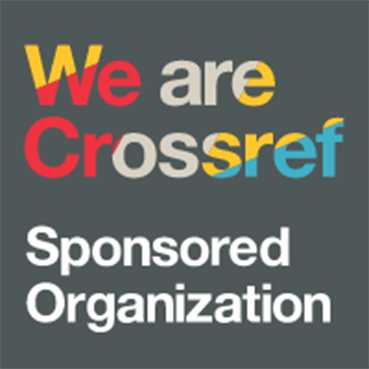Implementasi Metode Problem Solving dalam Meningkatkan Hasil Belajar Pendidikan Agama Islam di SMA Negeri 3 Purwakarta: Studi Eksperimental pada Kelas X
Main Article Content
Wishal Luthfikha Wishal
Imam Tabroni
Abdurahman Saleh
This research was conducted to investigate the effectiveness of teaching methods in enhancing the learning outcomes of Islamic Religious Education (PAI) for 10th-grade students at Sekolah Menengah Atas Negeri 3 (SMAN 3) Purwakarta. This study aimed to compare the learning outcomes of students between the lecture method and the Problem-Solving method. The research method employed was an experiment involving two groups of students, namely the experimental group taught using the Problem-Solving method and the control group taught using the lecture method. Learning outcome data was collected through pre-tests and post-tests and analyzed using the Independent T-Test statistical analysis. The research results indicated that the Problem-Solving method significantly improved students' learning outcomes (mean=65.51) compared to the lecture method (mean=41.67). The average percentage of students' learning outcomes using the Problem-Solving method reached 81.89%, categorized as "Good," while the lecture method only reached 52.08%, categorized as "Less Good." Based on these findings, it is recommended that teachers consider the use of the Problem-Solving method in PAI learning to enhance students' learning outcomes. The integration of this method can bring significant benefits, such as improving critical thinking, student engagement, and overall learning outcomes. Therefore, this research provides a crucial contribution to the development of more effective teaching strategies in the field of religious education.
Amirudin. (2023). Metode-metode Mengajar Perspektif Al-Qur’an Hadits dan Aplikasinya dalam Pembelajaran PAI. Deepubish.
Arikunto, S. (2019). Prosedur Penelitian Suatu Pendekatan Praktik. Rineka Cipta.
Darajat, Z. (2004). Metodik Pengajaran Agama Islam. Bumi Aksara.
Hasanah, S. U. (2019). Studi Komparasi Penerapan Metode Active Learning Model Reading Aloud dan Metode Konvensional Model Ceramah dalam Pembelajaran Bahasa Arab dan Pengaruhnya terhadap Respon Siswa Kelas V MI Ma’arif 01 Pahonjean Majenang. Jurnal Tawadhu, 3(1), 804–822. https://ejournal.iaiig.ac.id/index.php/TWD/article/view/138.
Hatuwe, O. S. R., Syobah, S. N., & Idris, H. (2023). Implementation of Project-Based Learning in Improving Critical Thinking Skills in Early Childhood. ITQAN: Jurnal Ilmu-Ilmu Kependidikan, 14(1), 53–66. https://doi.org/10.47766/itqan.v14i1.1543.
Ikhwan, A. (2017). Metode Simulasi Pembelajaran dalam Perspektif Islam. Istawa: Jurnal Pendidikan Islam, 2(2), 1-33. https://doi.org/10.24269/ijpi.v2i2.623.
Majid, A. (2016). Strategi Pembelajaran. Remaja Rosdakarya.
Nilakusmawati, D. P. E., & Asih, N. M. (2012). Kajian Teoritis Beberapa Model Pembelajaran. In Kajian Teoritis Beberapa Model Pembelajaran.
Nisfa, N. L., Latiana, L., Pranoto, Y. K. S., & Diana, D. (2022). Pengaruh Pendekatan Pembelajaran Project Based Learning (PjBL) terhadap Kemampuan Sosial dan Emosi Anak. Jurnal Obsesi : Jurnal Pendidikan Anak Usia Dini, 6(6), 5982–5995. https://doi.org/10.31004/obsesi.v6i6.3032.
Prijanto, J. H., & De Kock, F. (2021). Peran Guru dalam Upaya Meningkatkan Keaktifan Siswa dengan Menerapkan Metode Tanya Jawab pada Pembelajaran Online. Scholaria: Jurnal Pendidikan dan Kebudayaan, 11(3), 238–251. https://ejournal.uksw.edu/scholaria/article/view/4318.
Puspitasari, T. E., Robingatin, R., & Muadin, A. (2023). Implementation of Project-Based Learning in Improving Early Childhood Interpersonal Intelligence. ITQAN: Jurnal Ilmu-Ilmu Kependidikan, 14(1), 41–52. https://doi.org/10.47766/itqan.v14i1.1521.
Sueni, N. M. (2019). Metode, Model dan Bentuk Model Pembelajaran (Tinjauan Pustaka). Wacana: Majalah Ilmiah Tentang Bahasa, Sastra dan Pembelajarannya, 19(1), 3. https://doi.org/https://doi.org/10.46444/wacanasaraswati.v19i1.35.
Sugiyono. (2015). Metode Penelitian Pendidikan Pendekatan Kuantitatif, Kualitatif, dan R&D. Alfabeta.
Sugiyono. (2016). Cara Mudah Menyusun: Skripsi, Tesis, dan Disertasi. Alfabeta.
Tambak, S. (2014). Metode Ceramah: Konsep dan Aplikasi dalam Pembelajaran Pendidikan Agama Islam. Jurnal Tarbiyah, 21(2). https://doi.org/http://dx.doi.org/10.30829/tar.v21i2.16.
Trisnawati, S. N. I., Ramadhan, N., Pentury, H. J., Anggraeni, A. D., Solihat, E., Khasanah, U., Lasty, W. F., Otaya, L. G., & Rispatinigsih, D. M. (2023). Pengantar Pendidikan: Suatu Konsep dan Teori. Penerbit Tahta Media.
Wirabumi, R. (2020). Metode Pembelajaran Ceramah. Annual Conference on Islamic Education and Thought (ACIET), 1(1), 105–113. https://pkm.uika-bogor.ac.id/index.php/aciet/article/view/660.








